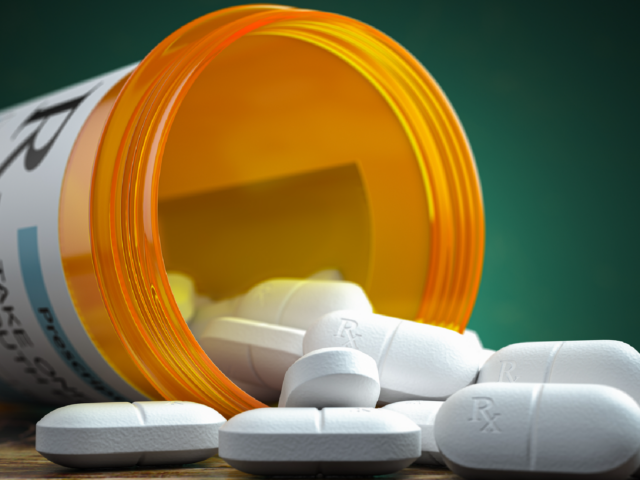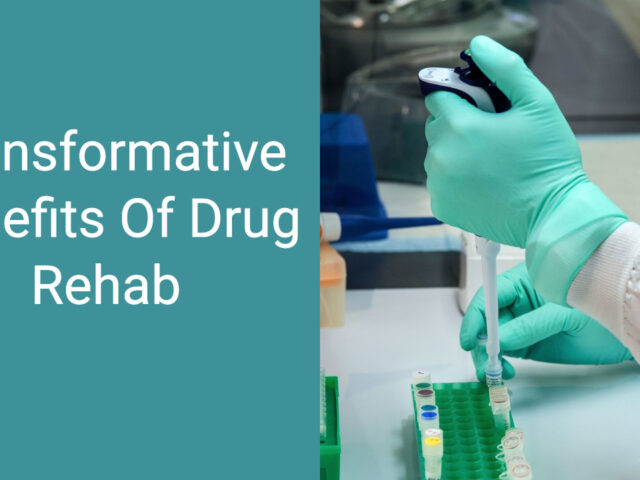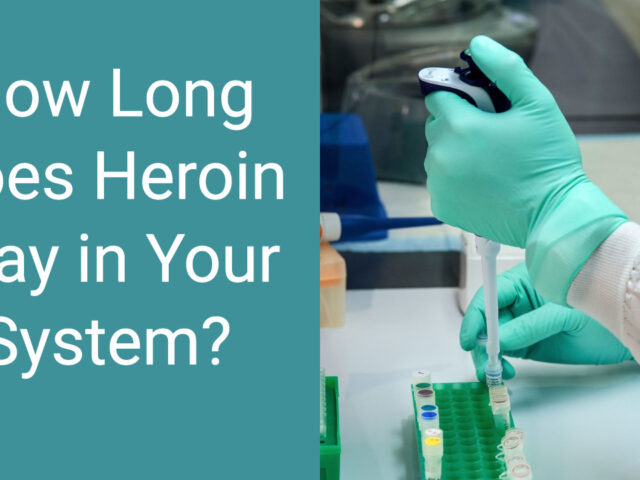Dry mouth can be painful and frustrating. But what does it have to do with opioid use?
What is Dry Mouth?
Dry mouth is the result of not having enough saliva in your mouth, or your saliva becoming too thick to function normally.1 It is an uncomfortable and often painful condition with a wide range of possible causes, including opioid use.
A mild, occasionally dry mouth due to feeling nervous or dehydrated is normal.1 However, persistent dry mouth can put you at risk for several oral health and dental issues. Dry mouth can also be a symptom of more serious issues like Sjogren’s Syndrome or opioid addiction1, so it’s important to understand the condition and what to do about it.
The Medical Name for Dry Mouth
While most commonly known as dry mouth, this condition does have a scientific name. The technical term for dry mouth is xerostomia1 (pronounced ZEER-oh-STOH-mee-ah).
Why Saliva is So Important
A lot of us take saliva for granted, and only notice when it’s missing. In a healthy mouth, saliva (also commonly known as spit) plays an important role. Saliva helps maintain your oral health by:
- Adding moisture to the food you eat, which helps break it down.
- Helping you swallow by lubricating your mouth and throat.
- Washing food particles off your teeth and gums.
- Helping your teeth stay strong by providing them with important minerals like calcium and phosphate.1
When you don’t have enough saliva in your mouth, dry mouth is the result. This can not only be painful but also puts your oral health at risk because the saliva is no longer present to fight fungal infections and tooth decay.
How to Tell if You Suffer from Dry Mouth
Dry mouth or xerostomia is largely subjective. This means that the easiest way to tell if you suffer from dry mouth is simply by how you feel.
If you have dry mouth, you may notice any of these symptoms:1,2,3
- Your mouth feels dry or sticky.
- Your saliva seems thick or stringy.
- You are struggling to chew or swallow.
- You feel a burning sensation in your mouth.
- You have difficulty speaking.
- Your lips or the corners of your mouth are cracked.
- There are pieces of white, flaky, dry saliva around your mouth.
- Your throat is dry or sore.
- Your tongue feels dry or rough.
- You have trouble tasting things, or they taste unusual.
- You notice sores or an infection in your mouth.
- Lipstick sticks to your teeth more than usual.
How a Doctor Will Diagnose Dry Mouth
Your doctor can help determine if you are suffering from dry mouth. In addition to asking about the symptoms listed above, your doctor might ask about any medications you are taking.
They may examine your mouth to check for signs of oral disease, or anything that could be blocking your saliva glands such as masses or swellings.2
They may also order a blood test or a test to measure how much saliva you are producing and at what rate. To measure your saliva, you might be asked to fast for a few hours or overnight, and then several methods can be used to measure how much saliva you produce during a short window of time (around 15 minutes). 2
Causes of Dry Mouth
Dry mouth has many causes. It can be a side effect of opioids and many other medications, radiation therapy and chemotherapy, and some diseases.
Do Opioids Cause Dry Mouth?
Yes, opioids are a common cause of dry mouth.2
Your autonomic nervous system is what controls your saliva glands. When you take opioids, they slow down your autonomic nervous system, which in turn slows down the production of saliva. This leaves your mouth with insufficient saliva to lubricate your mouth and protect your teeth, resulting in painful dry mouth.2
Other Medications that Can Cause Dry Mouth
In addition to opioids, a wide range of medications can cause dry mouth as a side effect. These include2:
- Bronchodilators used to make breathing easier (such as ipratropium and tiotropium)
- Drugs used to treat Parkinson’s Disease (such as benztropine, orphenadrine, and procyclidine)
- Antipsychotics used for a range of psychotic disorders (such as clozapine and quetiapine)
- Eye drops used to dilate your pupil (mydriatic eye drops) or temporarily paralyze your eye (cycloplegic eye drops) so that an optometrist can take measurements (such as atropine sulphate, tropicamide, and cyclopentolate hydrochloride)
- Medications used to treat irritable bowel syndrome and diverticulosis (such as hyoscine butylbromide and dicycloverine hydrochloride)
- Medications used to treat urinary incontinence (such as oxybutynin and tolterodine tartrate)
- Antihistamines used to relieve the symptoms of fever and allergies (such as cyclizine and chlorphenamine)
- Antiperspirants and antisecretories used to decrease various bodily secretions (such as glycopyrronium bromide)
- Tricyclic antidepressants used to treat depression and OCD (such as amitryptiline hydrochloride, dosulepin hydrochloride)
If you think your medication might be causing dry mouth, you can check to see if it is listed as a side effect.
Diseases that Can Cause Dry Mouth
Dry mouth can also be a side effect of certain diseases, including2:
- Sjogren’s Syndrome
- HIV and AIDS
- Alzheimer’s
- Diabetes
- Arthritis
Treatments that Can Cause Dry Mouth
Dry mouth can be a side effect of radiation therapy and some types of chemotherapy. This occurs when the radiation or chemo damages saliva glands and prevents them from producing enough saliva. It is most likely to occur if the radiation treatment was directed at the head or neck. This is the reason dry mouth is a common issue for cancer patients.3
Other Common Causes of Dry Mouth
A common cause of dry mouth is anxiety or feeling nervous. This is generally mild and temporary.4
Dehydration can also cause dry mouth. This is because when you are dehydrated, you don’t have enough fluid in your body to produce the saliva you need.4
The Long-Term Dangers of Dry Mouth
The serious complications that can occur because of long-term dry mouth include:1
- Increased plaque, which can lead to tooth decay and cavities
- Mouth sores
- Infections in your gum, saliva glands, and jaw
- Oral thrush (a yeast infection in your mouth)
- Poor nutrition because of difficulties with chewing and swallowing food
Clearly, these are serious issues that need to be addressed as early as possible.
How to Manage Dry Mouth
To relieve the discomfort of dry mouth, you can try to:1,2,3,4
- Sip water throughout the day
- Chew sugarless gum or suck on ice chips, which can help stimulate saliva
- Apply lip balm
- Use a humidifier while you sleep
To help you eat when you have dry mouth, you can:1,2,3,4
- Sip water during your meals to help you swallow the food
- Take smaller bites and chew them well
- Choose soft foods
- Add liquids to food wherever possible, such as gravy, sauce, milk, or yogurt
It can also help to avoid:1,2,3,4
- Caffeine (such as coffee, tea, and some sodas)
- Sugary drinks (like soda and juice)
- Spicy foods
- Salty foods
- Acidic foods
- Tobacco
- Alcohol
- Mouthwashes that contain alcohol (which many store-bought brands do)
Is an Opioid Addiction the Cause of Your Dry Mouth?
Dry mouth on its own can be painful. But if your dry mouth is the result of addiction to opioids, there are many other serious health issues that can follow.
California Behavioral Health is here to empower you on your recovery journey with effective, evidence-based therapies. Our Palm Springs drug rehab is a luxury facility staffed with experienced professionals.
Learn more about our tailored approach to addiction treatment today.
Frequently Asked Questions
I have dry mouth. Should I see a doctor?
Yes, if you notice signs of dry mouth, you should make an appointment to see your doctor.
Dry mouth is a common side effect of many medications, and your doctor can help find the best way to manage the discomfort. Dry mouth can also be a symptom of more serious issues like diabetes or opioid addiction, so it is important to get help as soon as possible.1
If you have been experiencing persistent dry mouth, you may also need to see a dentist to check for signs of tooth decay and gum disease.
Is dry mouth common?
Yes, dry mouth is a common side effect of many medications as well as some conditions like dehydration, diseases like HIV/AIDS, and treatments like chemotherapy. Cancer patients are among the most common sufferers of dry mouth.4
What causes dry mouth?
Dry mouth has a wide range of causes. Dry mouth can be a side effect of many drugs including opioids, antidepressants, and bronchodilators. It can also be the result of treatments like radiation therapy and chemotherapy. Some diseases including Sjogren’s Syndrome and diabetes can cause dry mouth, as well as temporary conditions like dehydration and anxiety.1
Is dry mouth a symptom of Covid-19?
According to some studies, dry mouth may be an early symptom of Covid-19.5 It is important to follow all local guidelines regarding testing and isolation if you may have or have been exposed to Covid-19.
What can I do to relieve dry mouth?
Dry mouth can be painful. You can relieve dry mouth by sipping water regularly, eating soft foods and foods with liquids (such as sauces), and chewing sugarless gum. You should also avoid caffeine, alcohol, and tobacco, which can exacerbate the dryness.
What is the technical name for dry mouth?
The medical term for dry mouth is xerostomia (pronounced ZEER-oh-STOH-mee-ah).1
Resources
1. U.S. Department of Health and Human Services. (n.d.). Dry mouth. National Institute of Dental and Craniofacial Research. Retrieved November 30, 2021, from https://www.nidcr.nih.gov/health-info/dry-mouth.
2. Taubert, M., Davies, E. M. R., & Back, I. (2007, March 10). Dry mouth. BMJ (Clinical research ed.). Retrieved November 30, 2021, from https://www.ncbi.nlm.nih.gov/pmc/articles/PMC1819535/.
3. Mouth dryness or thick saliva. American Cancer Society. (n.d.). Retrieved November 30, 2021, from https://www.cancer.org/treatment/treatments-and-side-effects/physical-side-effects/mouth-problems/dry-mouth.html.
4. U.S. Department of Health and Human Services. (2020, August). Dry Mouth: Questions and Answers. Retrieved November 30, 2021, from https://www.nidcr.nih.gov/sites/default/files/2020-11/Dry-Mouth-Q%26A.pdf.
5. Fantozzi, P. J., Pampena, E., Vanna, D. D., Pellegrino, E., Corbi, D., Mammucari, S., Alessi, F., Pampena, R., Bertazzoni, G., Minisola, S., Mastroianni, C. M., Polimeni, A., Romeo, U., & Villa, A. (2020, September 10). Xerostomia, gustatory and olfactory dysfunctions in patients with COVID-19. American Journal of Otolaryngology. Retrieved November 30, 2021, from https://www.sciencedirect.com/science/article/pii/S0196070920304154.










